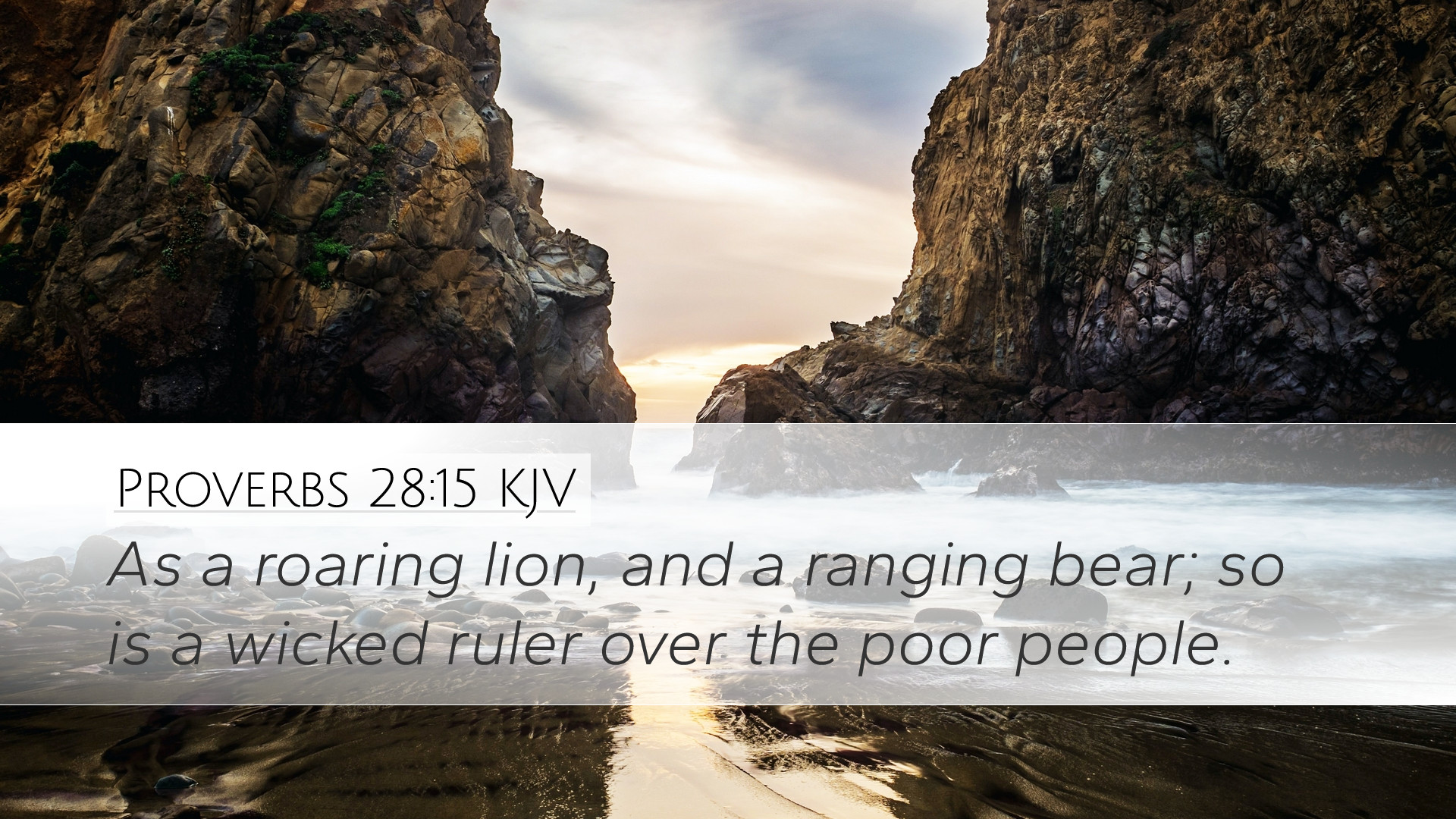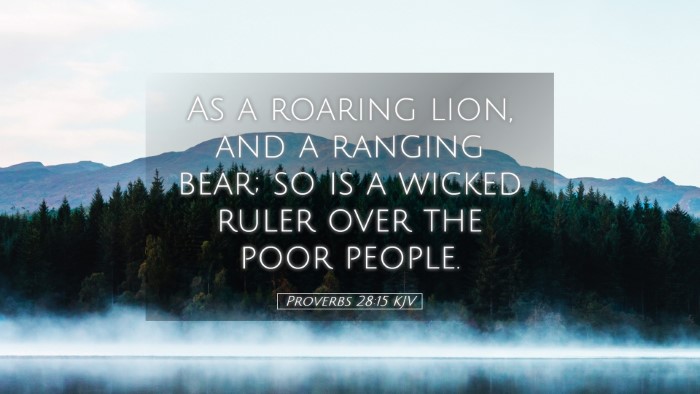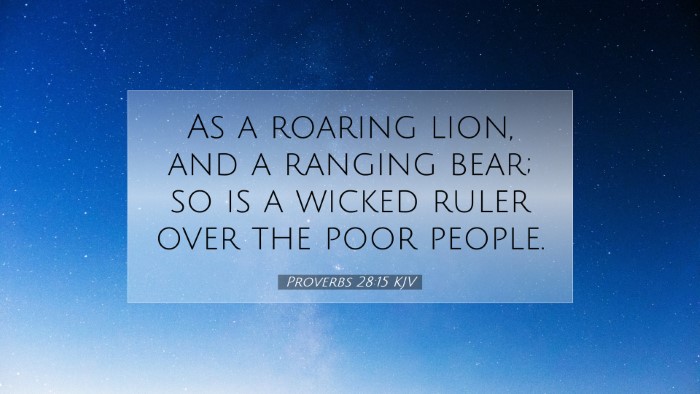Commentary on Proverbs 28:15
Verse Text: "As a roaring lion, and a ranging bear; so is a wicked ruler over the poor people." (Proverbs 28:15)
Introduction
This verse presents a stark image of the nature of wicked rulers in contrast to the welfare of the poor. The comparison to a roaring lion and a ranging bear highlights the ferocity and danger that such rulers pose. To fully appreciate the theological and practical implications of this verse, we can draw insights from several public domain commentaries.
Commentary Insights
Matthew Henry's Commentary
Matthew Henry likens the wicked ruler to a "roaring lion" and "ranging bear," emphasizing the terror and unpredictability that accompany such a leader's reign. He observes that these animals symbolize ferocity and dominance, asserting that just as these beasts can devastate their prey without remorse, so too can a wicked ruler oppress and exploit the needy.
Henry elaborates on the implications of such leadership: it creates an environment where fear reigns over trust, and the vulnerable are in constant peril. The ruler's wickedness leads to a breakdown of justice, causing the poorest members of society to suffer. This analogy serves as a powerful warning to those in positions of authority; a righteous ruler brings stability and peace, while a wicked one brings chaos and fear.
Albert Barnes' Notes on the Bible
Albert Barnes draws attention to the connotations of the roaring lion and the ranging bear in ancient Near Eastern cultures. Both animals were not only feared but represented untamed power that could disrupt the order of society. Barnes explains that this verse reflects the destructive potential of immoral governance, particularly towards the marginalized.
Barnes stresses the moral responsibility of rulers and the impact of their character on society as a whole. A ruler's actions have a significant effect on the welfare of their subjects, particularly among the poor, who often bear the brunt of tyranny and oppression. This commentary challenges believers and leaders to aspire to righteousness, understanding that their decisions hold weighty consequences.
Adam Clarke's Commentary
Adam Clarke provides an analytical perspective, touching on the societal implications of such governance. He notes that a "wicked ruler" is one who exploits their authority for personal gain at the expense of those who are already marginalized. Clarke highlights the need for integrity and morality in leadership roles, asserting that the absence of these virtues leads directly to societal decay.
Additionally, Clarke points out that the feared animals in this verse not only represent the rulers but also foreshadow the tumultuous fate that awaits those who suffer under their leadership. He underscores the concept of divine justice, suggesting that while the wicked may prosper temporarily, they will ultimately face consequences for their actions, leading to the establishment of justice and righteousness.
Theological Reflections
This verse prompts significant theological reflection regarding the nature of God’s justice. The imagery encapsulates God's disdain for injustice and the suffering of the poor. According to Proverbs, leaders are expected to exhibit wisdom and righteousness. Therefore, a ruler's wickedness not only breaks social contracts but also violates divine commandments regarding care for the disadvantaged.
Practical Applications
For pastors, students, theologians, and Bible scholars, this passage invites several practical applications:
- Leadership Accountability: We are reminded of the importance of integrity and accountability in leadership. Leaders bear a responsibility that transcends personal ambition; they must serve their communities with wisdom and compassion.
- Advocacy for the Poor: The verse calls for believers to advocate for those marginalized by society. It is a reminder that Christianity requires active engagement in matters of social justice, particularly standing with the oppressed.
- Prayer for Righteous Leaders: The passage encourages prayer for those in authority, asking God to guide them towards righteousness and to protect the vulnerable from potential abuse and tyranny.
- Personal Reflection: Individuals are called to reflect on their actions and attitudes toward those who are disadvantaged. Faith should manifest in action, living out the principles of equity and justice.
Conclusion
Proverbs 28:15 serves as a poignant reminder of the high stakes of leadership and the profound impact of a ruler's character on society. By utilizing the insights of notable commentaries, we recognize the necessity for righteousness in governance and the dire consequences of permitting wickedness to thrive. As communities of faith, let us engage with our leaders, hold them accountable, and foster environments where justice prevails, ensuring that the poor and needy are not left vulnerable to roaring lions and ranging bears.


